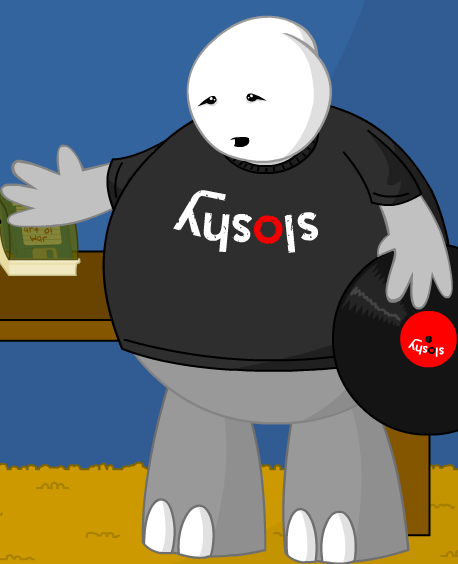Hello all, I am a 39M whose wife (42F) was just diagnosed with ADHD. We’ve had a suspicion ever since our 6 year old was diagnosed and we started doing a deep dive into it and realizing a lot of the symptoms fit her. Even some of the memes from this community helped her to start looking into it herself. She is relieved to find out she’s not just ‘a disorganized slob’, that there is a reason for her struggles, but now the real work begins.
My question is: what do you wish your partner would have known/done for you? I want to be as supportive as possible and make sure I’m not contributing to any negative feelings, and help her find ways to build coping mechanisms. Just looking for any advice!
Do you know what type of ADHD she has? Knowing that might change things a bit.
This is going to be really long, but I hope you find some of it useful for your situation. I don’t know how your wife’s ADHD presents, but I’m diagnosed with combined type ADHD, social anxiety, and depression, and I’m a woman around the same age as your wife. The things my partner does that really help me the most is to help make things easy and accessible for me.
I struggle a lot with executive dysfunction, and if I’m overwhelmed it tends to compound into paralysis. I have a lot of trouble staying organized and I’m constantly losing things, which causes me to be late a lot, and when I’m late my anxiety gets worse.
I try to think about things I do every day, and make them available to do in as few steps as possible. I like to keep items I use frequently near the area I use them in, kept together with other items needed to complete the task in little “kits” so that it doesn’t take much thought to do daily stuff.
Think minimalist, uncluttered, functional areas. For example, if she drinks coffee every morning, have the mugs on a stand near the coffee maker, have the coffee already in the coffee maker so she only needs to start it, and keep any sweeteners, etc she always uses near the mugs.
Another example, going to work is particularly stressful for me, so I try to lessen the amount of decisions and prep I have to do before hand. Getting all of my clothes and things I bring to work together the night before I have to work helps me a lot, because it lessens the chances of me being late, which helps with the anxiety overall.
For me, it feels like every decision I have to make, every lost item I have to find, every time I leave the room to get something and immediately forget what I went to get, my energy is drained. So minimizing these problems makes everything so much easier.
If I’m really struggling, a messy area makes anything I have to do so much worse. If I feel like I can’t do anything at all and the room is dirty and chaotic, everything is going to be so much harder. I don’t know if your wife’s symptoms are similar to mine, but if I’m a zombie and I can’t do anything and I’m doomscrolling Lemmy too much, having my partner help me by tidying the area around me makes a big difference. I feel like I can function a bit better.
There are times when I look like I’m being lazy, but I’m not. I might look like I’m just sitting around doing nothing or scrolling or playing some dopamine-extracting game all day, but in my head I’m thinking about how I want to do everything and I’m screaming at myself to do something, but I just…can’t. I don’t know if she has exacutive dysfunction like I do, but when it happens to me, I appreciate that my partner doesn’t make it worse by making me feel guilty about being “lazy,” because it’s not laziness at all.
Another thing my partner does that helps me with executive dysfunction is to just…put stuff near me. I like to paint, so if I’m stuck in “couch mode” too long, my partner will get my painting supplies and put everything I need within my reach. Eliminating steps really makes it easier to break the trance, and sometimes I’ll just start painting without thinking about it.
Sometimes decision making is particularly difficult for me and it requires a lot of mental energy when I’m feeling especially bad. If this is an issue for her, I would suggest trying to make choices as simple as possible. For example, instead of saying “what do you want for dinner?” you could say “I’m feeling like Italian or Chinese food tonight, do either of those sound good to you?” I feel like my mental energy is limited, especially if I’m in a depression, and making decisions simpler helps preserve it.
You both might like the “How to ADHD” channel on YouTube. She talks about ADHD from a woman’s perspective and some of her advice has been helpful for me. I sometimes show some of her videos to my partner because it helps him understand how I feel and think a bit better.
And of course, if you can, get her into counseling and/or medication as soon as possible.
Soooo yeah. Long response but I hope some of it was useful. Your wife is really lucky to have a partner who is making an effort to help and understand. Having support is so important. I wish you both luck! ADHD is not fun but there are ways to make it much easier. Feel free to AMA if I can help you in any way!
Thank you for your comments! I’ll try to reply to the pertinent points below:
Do you know what type of ADHD she has? Knowing that might change things a bit.
Inattentive. Being officially diagnosed hasn’t really changed a ton (it’s not like all of the sudden she changed how she acts) as we already have learned to deal with some of it, but it has helped to explain some things.
I struggle a lot with executive dysfunction, and if I’m overwhelmed it tends to compound into paralysis. I have a lot of trouble staying organized and I’m constantly losing things, which causes me to be late a lot, and when I’m late my anxiety gets worse.
I try to think about things I do every day, and make them available to do in as few steps as possible. I like to keep items I use frequently near the area I use them in, kept together with other items needed to complete the task in little “kits” so that it doesn’t take much thought to do daily stuff.
Yeah she definitely seems to have the executive dysfunction issues, can be very disorganized and have time blindness, which is nothing new. I like the idea of the kits you’re talking about, I’ll have to mention that to her (she knows I made this post as well). She doesn’t have the anxiety/depression part (although I struggle with anxiety and am on medication for it myself) so at least that is one less thing for her to deal with. I’m sorry you have those extra challenges!
Think minimalist, uncluttered, functional areas. For example, if she drinks coffee every morning, have the mugs on a stand near the coffee maker, have the coffee already in the coffee maker so she only needs to start it, and keep any sweeteners, etc she always uses near the mugs.
Another example, going to work is particularly stressful for me, so I try to lessen the amount of decisions and prep I have to do before hand. Getting all of my clothes and things I bring to work together the night before I have to work helps me a lot, because it lessens the chances of me being late, which helps with the anxiety overall.
For me, it feels like every decision I have to make, every lost item I have to find, every time I leave the room to get something and immediately forget what I went to get, my energy is drained. So minimizing these problems makes everything so much easier.
It’s funny, I’m definitely more of the minimalist in our relationship, while she is the pack rat. Areas being super cluttered definitely ups my anxiety and stress, and it has definitely led to friction. I like to put things away when I’m done with them or when I first come home, but she’ll just put stuff down and then almost becomes blind to it being there while it’s seriously stressing me out. I know I haven’t handled those situations in the best way in the past, but I am really trying to focus on the fact that now we know for sure that it is the ADHD.
When I have tried to help my putting her things away, it never seems to end well. Either I end up putting them somewhere that makes sense to me but not her, or I ask her what to do with it and it feels like I’m judging/attacking her. It has turned in to me basically ignoring her piles of clutter (other then to make them a little tidier on whatever surface they are on) and just straightening up my and our son’s stuff (or family stuff that I know clearly where it goes) while cleaning around them. Do you have any suggestions for good neutral questions to ask that would help her not feel like I’m shaming or attacking her for the stuff being out?
I have found that doing what I can to help her get prepared the night before or morning of she has something to do has helped, as well as minimizing the amount of questions I have to ask so she has less of a mental load. I can be a bit of an idiot sometimes so I had fallen into a bad habit of just asking her stuff that I probably could figure out on my own, so I am doing my best to change that.
If I’m really struggling, a messy area makes anything I have to do so much worse. If I feel like I can’t do anything at all and the room is dirty and chaotic, everything is going to be so much harder. I don’t know if your wife’s symptoms are similar to mine, but if I’m a zombie and I can’t do anything and I’m doomscrolling Lemmy too much, having my partner help me by tidying the area around me makes a big difference. I feel like I can function a bit better.
Honestly, I feel like this is me! Somehow, she functions better in a cluttered environment than me, almost like she’s blind to it (I think I may have mentioned that so apologies).
There are times when I look like I’m being lazy, but I’m not. I might look like I’m just sitting around doing nothing or scrolling or playing some dopamine-extracting game all day, but in my head I’m thinking about how I want to do everything and I’m screaming at myself to do something, but I just…can’t. I don’t know if she has exacutive dysfunction like I do, but when it happens to me, I appreciate that my partner doesn’t make it worse by making me feel guilty about being “lazy,” because it’s not laziness at all.
I’d like to think I’m pretty good about this - my wife works so hard and I try to remind her of that and thank her for it as well, instead of just taking it for granted. Over the weekend she had a number of things she wanted to do but was having trouble getting started, so I told her to just pick one, do it, and to try not to feel bad about not doing the others. We both are trying to be kinder to ourselves in that way, as we both tend to push ourselves and feel guilty when we don’t get as much done as we’d like.
Another thing my partner does that helps me with executive dysfunction is to just…put stuff near me. I like to paint, so if I’m stuck in “couch mode” too long, my partner will get my painting supplies and put everything I need within my reach. Eliminating steps really makes it easier to break the trance, and sometimes I’ll just start painting without thinking about it.
Sometimes decision making is particularly difficult for me and it requires a lot of mental energy when I’m feeling especially bad. If this is an issue for her, I would suggest trying to make choices as simple as possible. For example, instead of saying “what do you want for dinner?” you could say “I’m feeling like Italian or Chinese food tonight, do either of those sound good to you?” I feel like my mental energy is limited, especially if I’m in a depression, and making decisions simpler helps preserve it.
These are some very good ideas, thank you! I have found it helps to have my own suggestions for things instead of always asking her what she wants, and I’ll have to try to do that even more. I find my mental energy gets limited for that kind of stuff too thought, sometimes. Aren’t we quite a pair? LOL
You both might like the “How to ADHD” channel on YouTube. She talks about ADHD from a woman’s perspective and some of her advice has been helpful for me. I sometimes show some of her videos to my partner because it helps him understand how I feel and think a bit better.
And of course, if you can, get her into counseling and/or medication as soon as possible.
Yep, she already watches that channel and I really need to start. As far as counseling/medication, she is looking into it. She is a little resistant to just jump to medication but she is coming around to the idea. Right now, the doctor who diagnosed her just said to give it a little time to process, but can provide her with some counseling/medication resources when she is ready. She already sees a therapist semi-regularly who has some experience with ADHD, so hopefully she can get some support there as well.
Soooo yeah. Long response but I hope some of it was useful. Your wife is really lucky to have a partner who is making an effort to help and understand. Having support is so important. I wish you both luck! ADHD is not fun but there are ways to make it much easier. Feel free to AMA if I can help you in any way!
Eh, I’m just a guy who can definitely do better, but thank you. And thank you for all of your comments. Do you have any other coping strategies you’ve come up with that you find helpful?
I’m so glad some of my ideas were useful! Let me see what I can add here. Of course everyone is different, and since she’s inattentive type and I’m combined type some things may vary for her but I’m sure there is some overlap in our experiences.
So this part gave me some ideas:
When I have tried to help my putting her things away, it never seems to end well. Either I end up putting them somewhere that makes sense to me but not her, or I ask her what to do with it and it feels like I’m judging/attacking her.
I went through a similar phase (seeming to like cluttered spaces) but I eventually realized it’s not the clutter that I want, I actually hate the clutter. It’s having the items I need visible and easily within reach. You could try looking at where she’s regularly leaving certain items, and try to find a better way to organize them close to where she’s leaving them. For starters, something I’ve been doing is to sort things into bins I can just throw things into. I get lots of cheap bins from Dollar Tree for this. For example, just a bin for makeup stuff, a visible utensil holder for kitchen utensils I use frequently that stays on the counter, a bin for just the skin care stuff I use at night and a different one for skin care stuff I use in the morning, etc. A bin I can just yeet things into without thinking too much. Even if the way it’s sorted seems somewhat irrational, having an easy way to sort things helps and I don’t lose items as much. As another example, when I’m folding laundry, I can’t usually do it in one go, and I’ll throw smaller items (socks, washcloths, etc) onto my dresser to fold. I lose interest in folding, and end up with a pile of these items all over my dresser. So my solution is to put a bin on my dresser I can throw them into, and even though it’s a bit messier than I’d like, it’s realistic to my usual behavior and minimizes the mess. Being realistic with organizing and trying not to blame myself for not organizing the same way most people do has helped minimize the clutter a bit. Do most people have a sock bin on their dresser? Absolutely not. But ADHD is a type of neurodivergence, we don’t think or behave like the average person. Instead of trying to fight a behavior, you learn to work within it, even if it’s a little weird to others. I think of it like an accessibility thing. People who use wheelchairs have certain equipment around their homes to make things easier for the way they need to live. I have weird bins because my brain is chaotic. Sorta similar, but with a mental disorder instead of a physical one.
So my suggestion would be to look at the behaviors she is the most consistent with and try to make those as intuitive as possible without having to search for items. I think of my brain as having a health bar, so there is a limit to how much I can handle in a day and minimizing small hits (making decisions and looking for lost things especially use my HP) will keep my HP from going into the red. If I have to open cabinets (weirdly distracting for some reason lol) or go to another room for items I need for a task I tend to lose focus and forget what I was trying to do. Those are hits to my HP. Keeping needed items visible and within reach helps a lot and I can get more done.
I’d like to think I’m pretty good about this - my wife works so hard and I try to remind her of that and thank her for it as well, instead of just taking it for granted.
This is very important! I feel like I’m being judged and criticized all the time for things I’m trying my best to control but can’t. Especially at work. Having a supportive partner who makes an effort to understand how I think and feel, even if they’re not always perfect at it, is more helpful than you might realize!
Over the weekend she had a number of things she wanted to do but was having trouble getting started, so I told her to just pick one, do it, and to try not to feel bad about not doing the others. We both are trying to be kinder to ourselves in that way, as we both tend to push ourselves and feel guilty when we don’t get as much done as we’d like.
This way of thinking is great! Not being judgemental and being kind to yourself helps a lot. This is a good start, but I do have a few notes on the techniques here, just based on how I feel personally. Since she has executive dysfunction too, maybe this will apply. So, my partner has tried a similar thing with me, and sometimes it locks me up if he says “just pick something and don’t worry about the other stuff.” The “just pick something” messes me up a bit, now I’m thinking about all of the things I could do and I can’t pick one because maybe the other things are more important? He said the word “worry,” should I be worrying though? Which task is most important? If I start doing one of the things, all I can think about is “should I be doing the other thing?” And this leads to me doing nothing at all. I would love to not feel guilty about the things I’m not doing, but it’s not really a rational feeling and I can’t switch it off even if I think it’s silly.
When I’m in this kind of situation, it helps if my partner is what I would call gently pushy. By this I mean, don’t try to force her to do things, but help her decide based on what you think would be best for her and would make her happiest, and facilitate her decision. This is not telling her what to do, it’s helping her reach the decision she would want to make if she could think straight. Keep things very simple and make more statements than questions. Instead of “do you think you might want to do X?” which is going to cause me to start thinking “do I want to do X? Should I do X?” you could try “So you said you were thinking about doing X, I think that would be a good idea. Let’s do that!” Doing that will help me focus on one task and be more excited about that task instead of thinking about the things I’m not doing, which is a lot of the problem with executive dysfunction for me. Not feeling confident about my decisions makes it hard to focus on what I decided on.
So to expand on something I mentioned in the last comment, let’s say I’ve told him I want to do a lot of things and I can’t decide on one, so he might think “she’d probably feel better if she got some painting done.” So he’ll say “I’d love to see you do some painting” and he’ll help me set up my painting stuff. Having it all ready in front of me makes it so much easier to get started and if he doesn’t mention the other options, they’re less likely to get stuck in my head and trip me up when I’m trying to focus on the task I’ve chosen.
I have found it helps to have my I find my mental energy gets limited for that kind of stuff too thought, sometimes. Aren’t we quite a pair? LOL
That’s completely understandable, you’re human too and your issues are important too, even if hers are more severe at times. What matters is that you’re making an effort to learn and communicate better. You’re supporting each other and listening to each other, and it sounds like you’re doing a great job with those things! Not everything you do will be the perfect thing every time, and that’s okay. We’re not trying to be perfect here, just to function better overall. Make sure you take care of yourself and your mental health too!
I really hope she decides to try counseling and/or meds. If she’s reluctant to try medication, I have a few supplements that help me, such as L-tyrosine to help with dopamine-related symptoms and alpha GPC for focus. ADHD meds have been on a national shortage, so I’ve used these to get through when I can’t get my medication.
Anyway, I edited this to reduce my run on sentences and parentheses abuse as much as possible but it was still super long lol! I hope at least some of it was helpful though! I still struggle with my ADHD a lot, and I definitely still have a lot of work to do, but these are a few things I’ve learned that help me cope with it. If I can help you with anything else don’t hesitate to ask!
deleted by creator
First of all, you’re amazing, and your wife is lucky to have a supportive partner.
It really helps me that my husband understands that I can get overstimulated or overwhelmed and then I’m kind of useless until I recharge. So I can just tell him “I’ve reached my limit” and he knows to take over for a bit. It could be with parenting or cleaning or anything. I’ll go rest and then help out when I’m back to having energy. I know this is just simple communication, but it helps him to understand I’m not just being lazy.
He is also a great sounding board. I can come to him and say “my thoughts are all over the place, and I feel paralyzed” and he will just sit there and listen while I verbally vomit, then he tries to help me organize my thoughts/figure out the next step.
And the last thing is just patience. I get that it can be frustrating when your spouse constantly loses things and needs reminders. He is so patient and helps me all the time. He truly understand it’s a disability for me, and he loves me regardless.
Aw thank you. I am by no means perfect and I make a lot of mistakes and say the wrong thing but I try.
Thank you also for your comments.
It really helps me that my husband understands that I can get overstimulated or overwhelmed and then I’m kind of useless until I recharge. So I can just tell him “I’ve reached my limit” and he knows to take over for a bit. It could be with parenting or cleaning or anything. I’ll go rest and then help out when I’m back to having energy. I know this is just simple communication, but it helps him to understand I’m not just being lazy.
It’s funny, when it comes to social situations, this is more me than her. For parenting, we both definitely have our limits and try to give each other time to take a break and recharge, and I try to handle most of the cleaning/straightening up. The problem I often run into is when it comes to her stuff - she is definitely a bit cluttered and once something has just been sitting for a day or two, it is like she gets a blindness towards it, meanwhile it’s driving me crazy that it hasn’t been put away. However, when I try to put her stuff away it never ends well, either I don’t know where to put it (because she doesn’t have a spot for it) or I say the wrong thing in trying to ask her what to do with it. Do you have any suggestions on how to help support her straightening up her items without making her feel judged or pressured?
He is also a great sounding board. I can come to him and say “my thoughts are all over the place, and I feel paralyzed” and he will just sit there and listen while I verbally vomit, then he tries to help me organize my thoughts/figure out the next step.
How does he help you organize your thoughts? Just curious if there is a line of questioning that you find useful or what.
And the last thing is just patience. I get that it can be frustrating when your spouse constantly loses things and needs reminders. He is so patient and helps me all the time. He truly understand it’s a disability for me, and he loves me regardless.
Haha yeah, there is a lot of forgetting stuff and me needing to remind her to do stuff, I don’t mind a ton but it can get frustrating, especially when it feels like I’m supposed to be the one remembering ‘everything’. I feel like we have got a good system down in that I usually try to handle keeping our calendar up-to-date and reminding her of stuff on the calendar.
Do you have any suggestions on how to help support her straightening up her items without making her feel judged or pressured?
What helped me was having a designated place for all of the important things and things I tend to displace often, but that’s something I had to initiate on my own. Maybe you can suggest that and help her actually come up with specific places. Like, we had to mount some small shelves and a jewelry organizer and a peg board to organize some things, but it was well worth the effort.
How does he help you organize your thoughts?
He starts out by just making himself available and listening, which solves the problem for me like 70% of the time because I process things externally aka verbally, so as I talk, I solve my own problems. In the other 30%, he just sort of reflects on what I’m saying, first asking me what solutions I already thought of (this is crucial because then it doesn’t seem patronizing when he offers solutions). And then, he is a quasi-engineer, and he is great at triage and decision-making, so he will throw out ideas but he will never force me to go a specific way, just make suggestions and let me decide.
I hope this helps!
This is a great question and not one I can answer easily, just have patience. I appreciate you for thinking to ask something like this.
Thank you!
Get the “How to ADHD” book. The YouTube channel is good, but the book is an incredible guide for both the person with ADHD and their loved ones.





